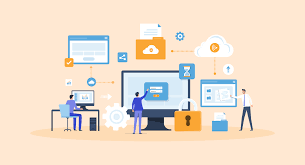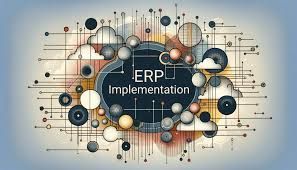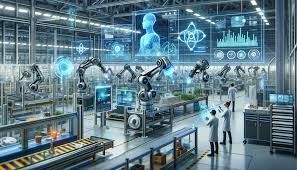Nimbus XP Blog

As businesses evolve, the need to upgrade or replace outdated ERP systems becomes inevitable. However, ERP migrations often present significant challenges, including data inconsistencies and process disruptions. In this blog, we'll explore how leveraging digital twins can streamline ERP migrations, ensuring a smoother transition and positioning Nimbus XP as your ideal partner in this journey.

In today's fast-paced business environment, making informed decisions is crucial for staying competitive. Traditional decision-making often relies on intuition and experience, which, while valuable, can sometimes lead to suboptimal outcomes. Enter digital twins—virtual replicas of physical assets, processes, or systems that enable businesses to transform their decision-making processes through data-driven insights.

In today's fast-paced business environment, staying ahead of the competition requires more than just traditional automation. Companies rely heavily on Enterprise Resource Planning (ERP) systems to manage business processes and data, but these systems often fall short in providing real-time insights and optimizing operations. Enter the digital twin: a powerful solution that can elevate your existing ERP system to new heights of efficiency and data utilization.

As we stand on the brink of the Fourth Industrial Revolution, commonly known as Industry 4.0, the manufacturing landscape is undergoing a transformative shift. This new era is characterized by the integration of advanced technologies, such as the Internet of Things (IoT), artificial intelligence (AI), and big data analytics, to create smarter, more efficient manufacturing processes. At the heart of this revolution lies a groundbreaking concept: Digital Twins.

In today's fast-paced business environment, making informed decisions is crucial for staying competitive. Traditional decision-making often relies on intuition and experience, which, while valuable, can sometimes lead to suboptimal outcomes. Enter digital twins—virtual replicas of physical assets, processes, or systems that enable businesses to transform their decision-making processes through data-driven insights.

In the dynamic landscape of modern business, efficiency is often seen as the pinnacle of operational success. While streamlining processes and reducing waste are essential, true innovation lies in exploring beyond mere efficiency. Enter the digital twin—a powerful concept that transcends traditional process optimization, unlocking new avenues for creativity, experimentation, and product innovation.

In today’s fast-paced and highly competitive market, customer experience has become a crucial differentiator for businesses. Companies are constantly seeking innovative ways to enhance customer satisfaction and loyalty. One such innovation that has been making waves is the concept of digital twins. By creating virtual replicas of physical products, businesses can unlock a plethora of opportunities to personalize, optimize, and predict, leading to a significantly improved customer experience.



